Why the Pope's visit to Egypt is little more than an attempt to rebuild bridges with the country's Coptic Christians
Just three weeks after the Palm Sunday attacks, Pop Francis made a historic visit to Egypt in a bid to foster peace between the Christian and Muslim communities, as Isis-affiliated fighters continue to fuel tensions
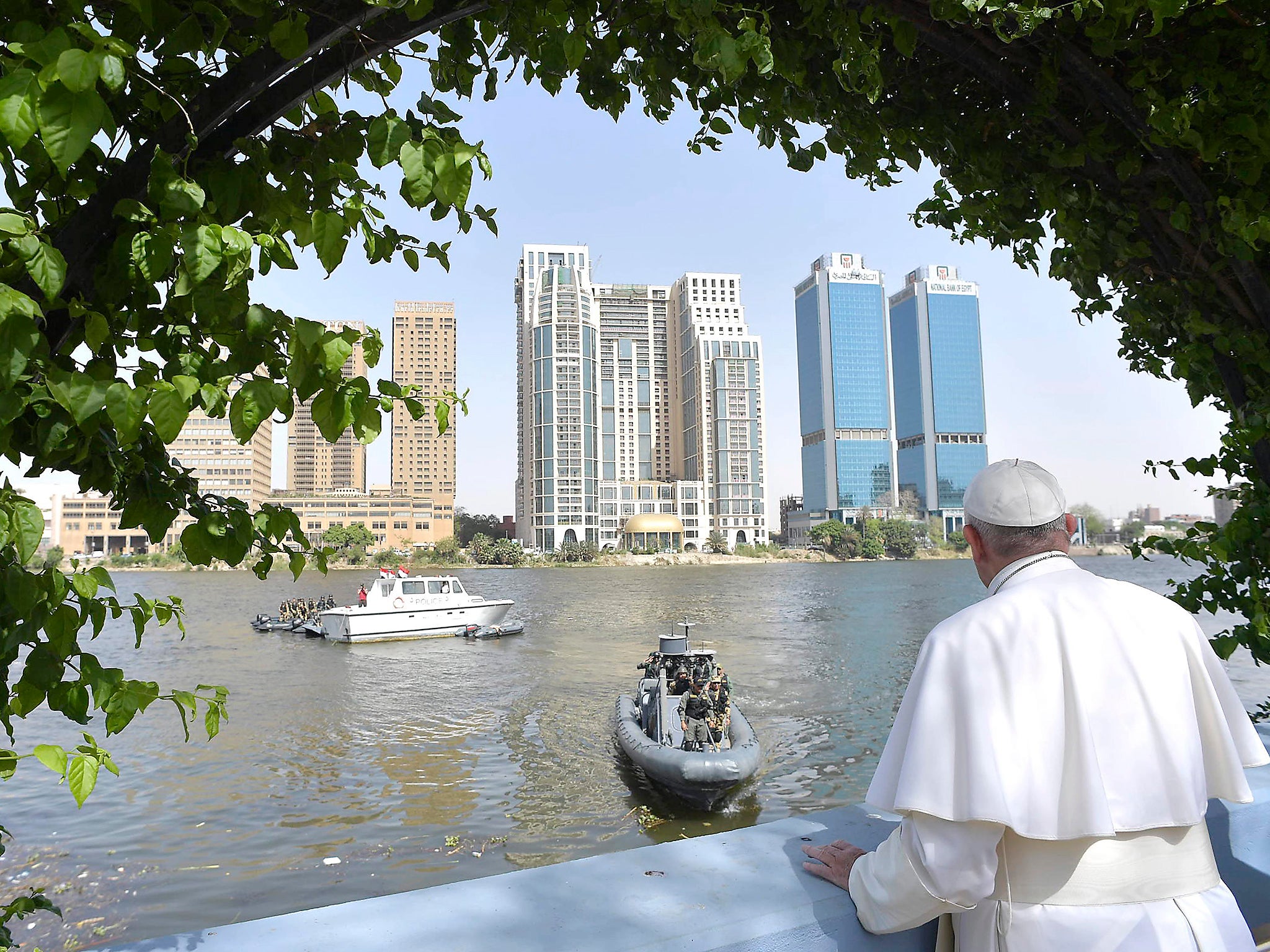
Your support helps us to tell the story
From reproductive rights to climate change to Big Tech, The Independent is on the ground when the story is developing. Whether it's investigating the financials of Elon Musk's pro-Trump PAC or producing our latest documentary, 'The A Word', which shines a light on the American women fighting for reproductive rights, we know how important it is to parse out the facts from the messaging.
At such a critical moment in US history, we need reporters on the ground. Your donation allows us to keep sending journalists to speak to both sides of the story.
The Independent is trusted by Americans across the entire political spectrum. And unlike many other quality news outlets, we choose not to lock Americans out of our reporting and analysis with paywalls. We believe quality journalism should be available to everyone, paid for by those who can afford it.
Your support makes all the difference.On the morning of 9 April, 40-year-old Mamdouh Amin Baghdady walked into the Mar Girgis church in the Nile Delta city of Tanta and detonated a suicide vest, upending wooden pews and spraying the congregation with shrapnel. It was Palm Sunday, the first major holiday of Easter, and the church was packed with worshippers. Hours later, another attacker blew himself up outside the Saint Mark’s Church in Alexandria, where the Coptic Pope Tawadros II was leading the celebrations. The attacks were claimed by the Isis-affiliated Province of Sinai and, in total, 48 people were killed.
Last Friday, less than three weeks after the bombings, Pope Francis arrived in Egypt for a two-day visit that he said would be “a message of friendship and respect for all the inhabitants of Egypt and the region.” In a video released by the Vatican before his arrival, the pontiff appealed to Egyptians to “build bridges of peace, dialogue, fraternity, justice and humanity.”
But for many Copts, who make up around 10 per cent of Egypt’s population, these seem like distant prospects. Violence towards them is at a historic high, with terrorist attacks becoming more frequent and everyday persecution on the rise. In Upper Egypt, there are reports of churches being burned and Christians being attacked and abducted.
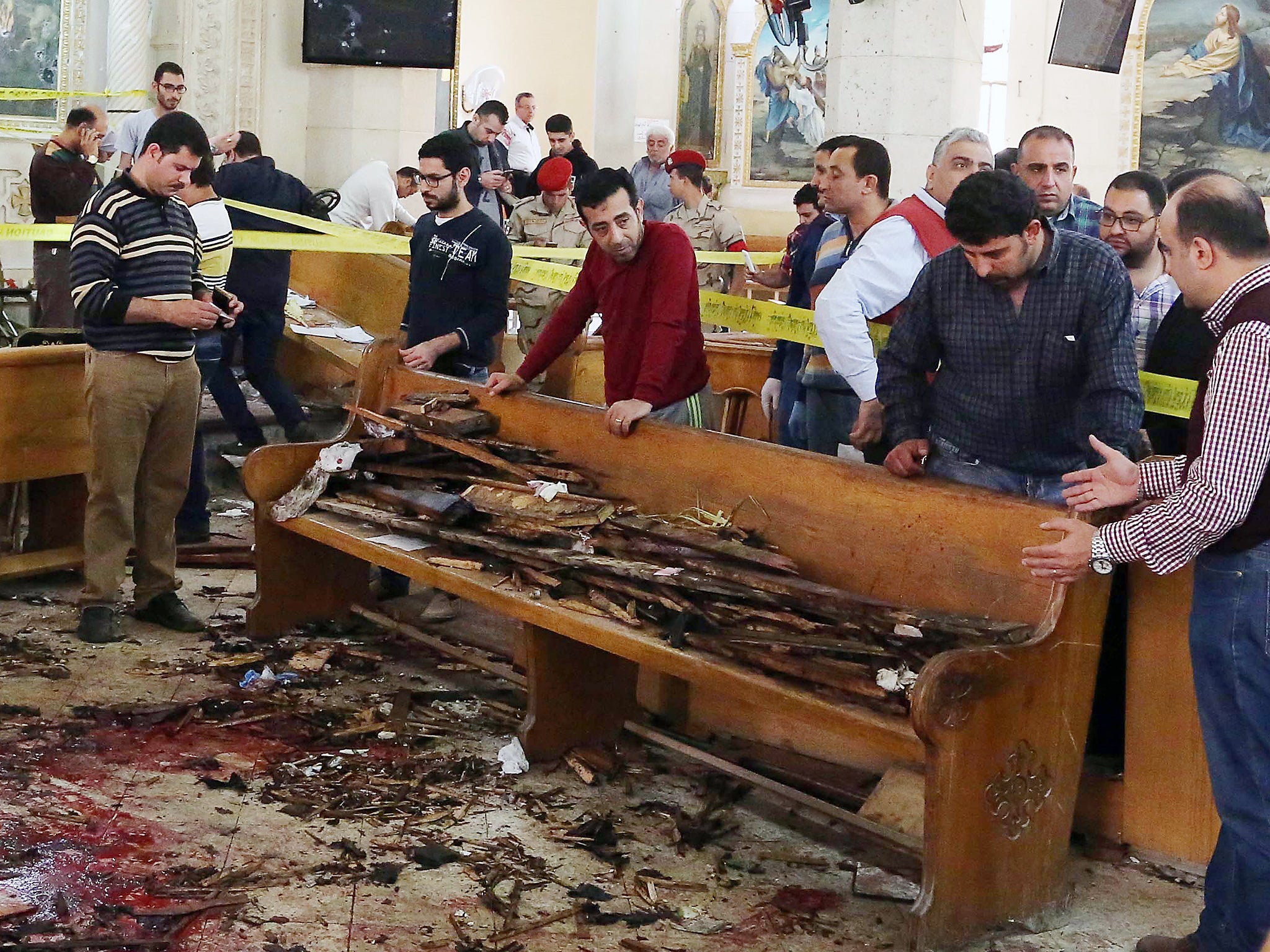
In the troubled region of North Sinai, Copts face execution at the hands of Sinai Province. After supporting President Abdel-Fattah el-Sisi’s rise to power following the fall of the Muslim Brotherhood government in 2013, Christians say they feel increasingly abandoned by the state as sectarian tensions that have simmered below the surface for generations begin to boil over.
Atef William, a 60-year-old bureaucrat from Tanta, should have been at the church at the time of the attack, but had gone into his office beforehand and was running late. His wife, 50-year-old Menal Fakry Teriaq, had been present throughout the ordeal. When William arrived at the church, half an hour after the explosion, he found her shaking, and covered in plaster and rubble from the blast. Her knuckles were bloodied, and she had injuries up the left side of her body where shrapnel from the bomb had torn into her.
“The last thing I remember before the explosion was seeing the deacons leading a chant on stage,” she says. As the bomb went off, the room became thick with smoke and screams. By the time the dust settled, she says, the deacons, who she’d known for years, “were just a pile of limbs.” The couple lost other close friends in the attack, including William’s 40-year-old cousin who succumbed to his injuries in hospital three weeks later.
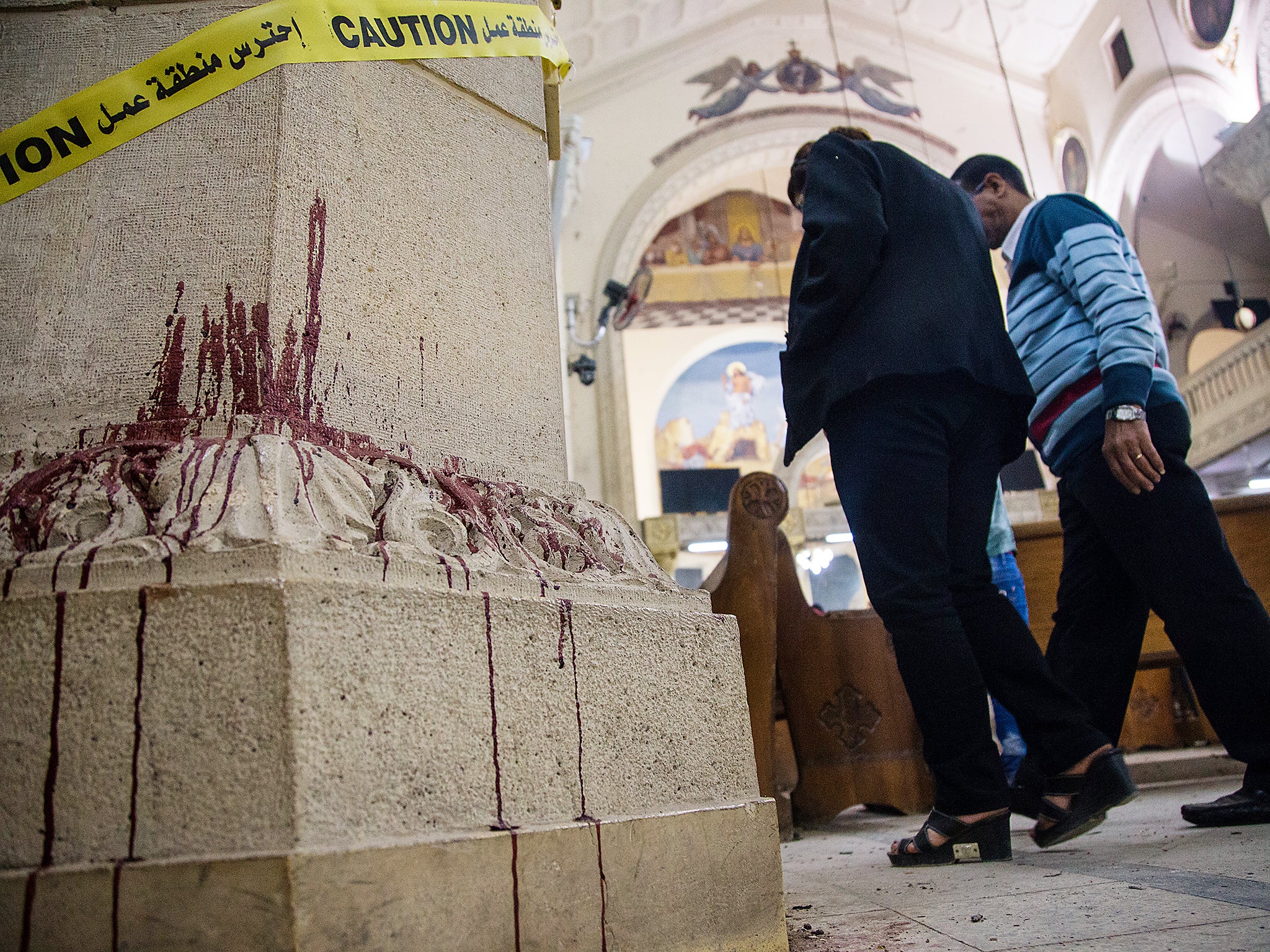
They argue that the security services should have realised that an attack that day was likely. Sinai Province had killed 29 in the suicide bombing of a church in Cairo’s Abbasiya district just four months beforehand, and promised further attacks on Copts in a video message released afterwards, referring to them as their “favourite prey”. The security services have received criticism for failing to react properly to the threat, especially when it was revealed that the bombers were known to the police and had previously travelled to Syria for terrorist training.
Sinai Province, and the insurgencies that preceded it, have been fighting against the Egyptian state in some shape or form for decades. The repeated targeting of Christian civilians is a new tactic and could mark a shift in strategy. A propaganda piece from 2014, titled “The Secret to the Egyptian Enigma,” explains that indiscriminate killing of Christians is one of the “keys to jihadi success.”
Through stoking existing tensions between Christians and Muslims, Sinai Province hopes to reveal “the reality of conflict” between the two religions. As attacks increase, fuelling sectarian animosity, the theory is that Egypt will become further divided and Muslims won over to the Isis cause, as the country spirals into civil war.
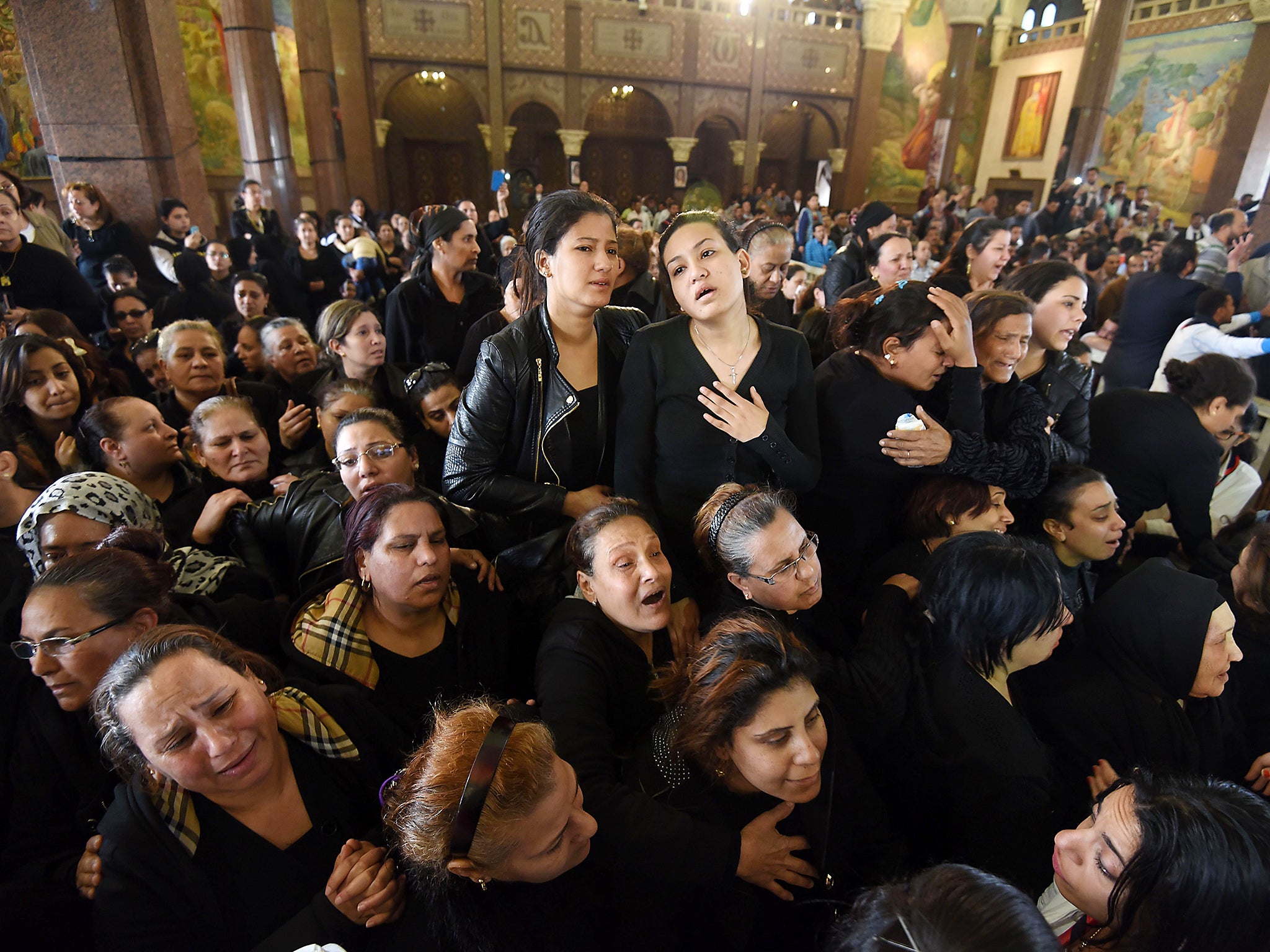
It’s the same thing Sisi said when he ran for president in 2014 on the ticket of bringing stability to the country. Had he not taking control, he argued, then Egypt could end up going the way of Syria; he won with 97 per cent of the vote. After seeing him oust the Muslim Brotherhood from power in 2013, many in the Coptic community, including William and Teriaq, rallied behind the ex-army general in the hope that he would protect religious minorities.
HA Hellyer, a senior fellow at the Royal United Services Institute, says that, in the wake of Islamist rule, “many Christians felt threatened, on account of the repeated sectarian discourse the Brotherhood used. Against that backdrop, it is not surprising that so many Christians supported Sisi.” With attacks on the rise, though, the couple have lost faith in the president. “I would definitely not vote for him again,” says William.
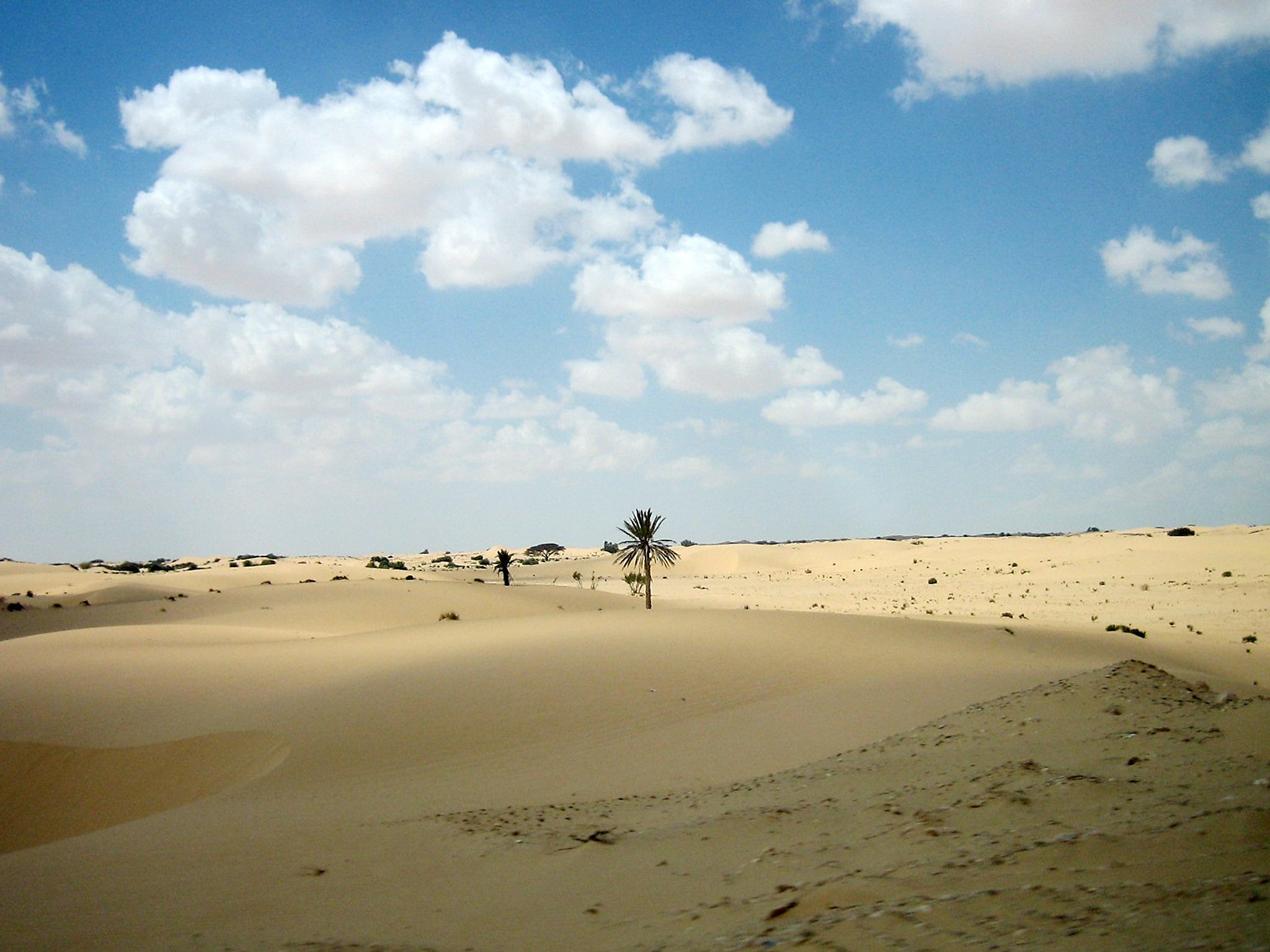
Sisi has been keen to present an administration that treats Copts more favourably than previous ones. Less than a year into office, he became the first president to attend Christmas mass. In 2015, when Isis beheaded 21 Coptic Egyptians in Libya, he dispatched a squadron of F-16 fighter jets across the border for a single bombing mission a military statement described as “revenge for the blood of Egyptians.”
Following the Abbasiya bombing, he announced he would be making a personal donation of LE 100,000 (£4,300) towards the “largest church in Egypt”, to be built at a later date in the proposed new capital city.
“All he does is give us empty promises” says Naguib Gabriel, the founder of the Egyptian Union for Human Rights and a prominent spokesperson for the Coptic community. “We want to see an end to our persecution.” But the president has proved unwilling to engage in accusations of discrimination towards minorities.
Egypt prides itself on being more unified than many of its regional neighbours and doesn’t like to admit the existence of sectarian conflict. “The regime rejects the concept that there are divisions in the country,” says Samuel Tadros, a senior fellow at the Hudson Institute. “Egypt is one nation and any talk of these divisions is an attempt to divide us.”
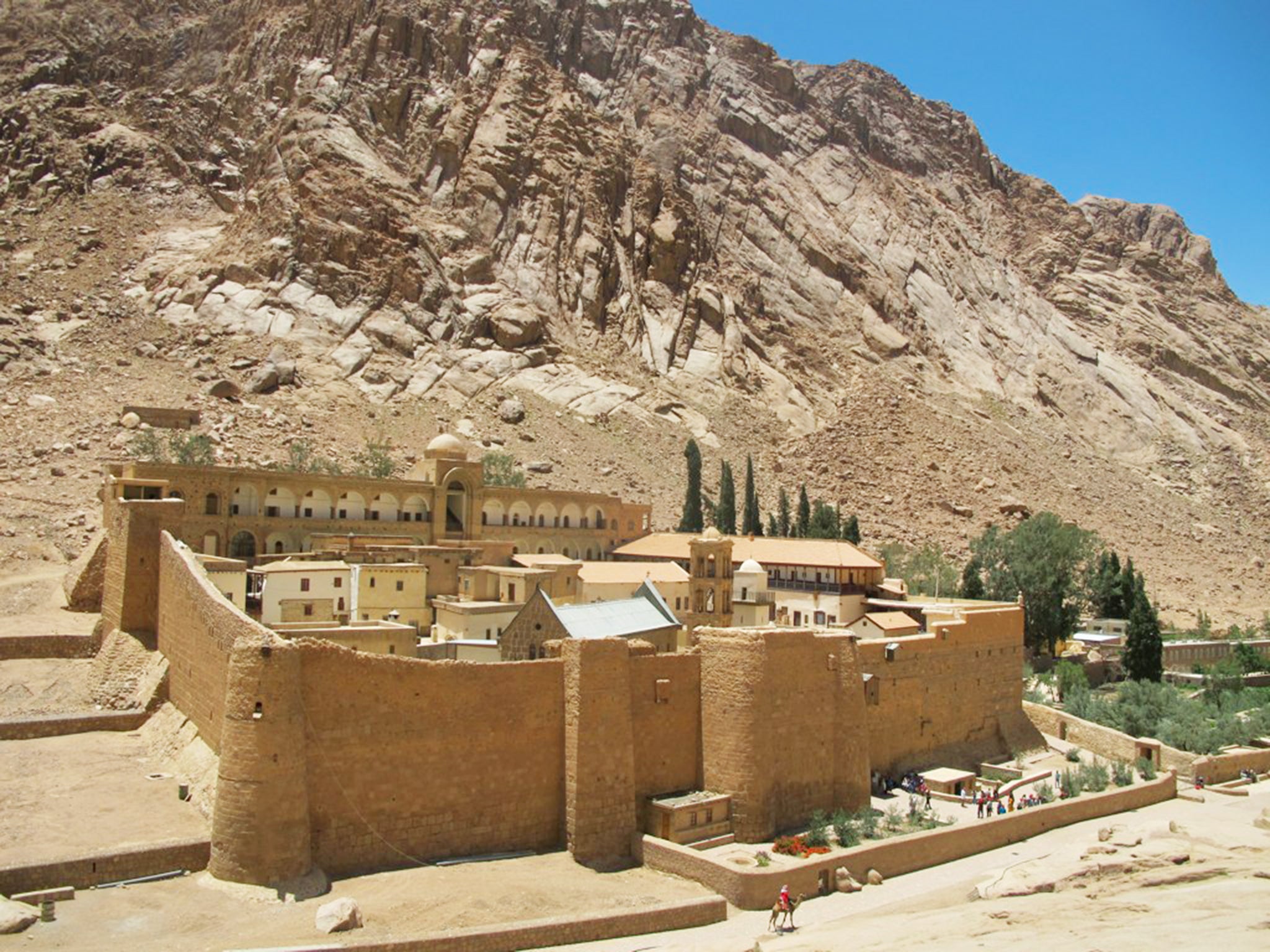
Nevertheless, acts of violence and discrimination that have been perpetrated against Christians for decades are still reported under the Sisi administration. Kidnappings in the countryside have spiked, where wealthy Christians are taken for a ransom. There are even more occasional – and generally unconfirmed – reports of Christian girls being abducted and forced to marry their Muslim captors.
“There are weekly attacks in [the Upper Egyptian city of] Minya,” says Tadros. “You get these mob attacks on Christians; burning houses; looting their businesses. That’s the daily life of Copts.”
Even official state policy itself has been accused of maltreating the Coptic minority. A long-awaited law on church building, which would ostensibly overturn draconian, Ottoman-era practice regarding Christian places of worship, was finally passed last year. The Christian community hoped that under the new rules, the legislation would no longer be used as a way of preventing new churches being built.
But the law came under instant criticism from groups such as US-based Human Rights Watch, which argued it gives the power to provincial governors to arbitrarily deny construction of a church with no room for appeal. Governors are also urged to consider “security and public safety” before signing off on new builds, which HRW argues legitimises mob violence as a means to prevent new churches and sends “the message that Christians can be attacked with impunity.”
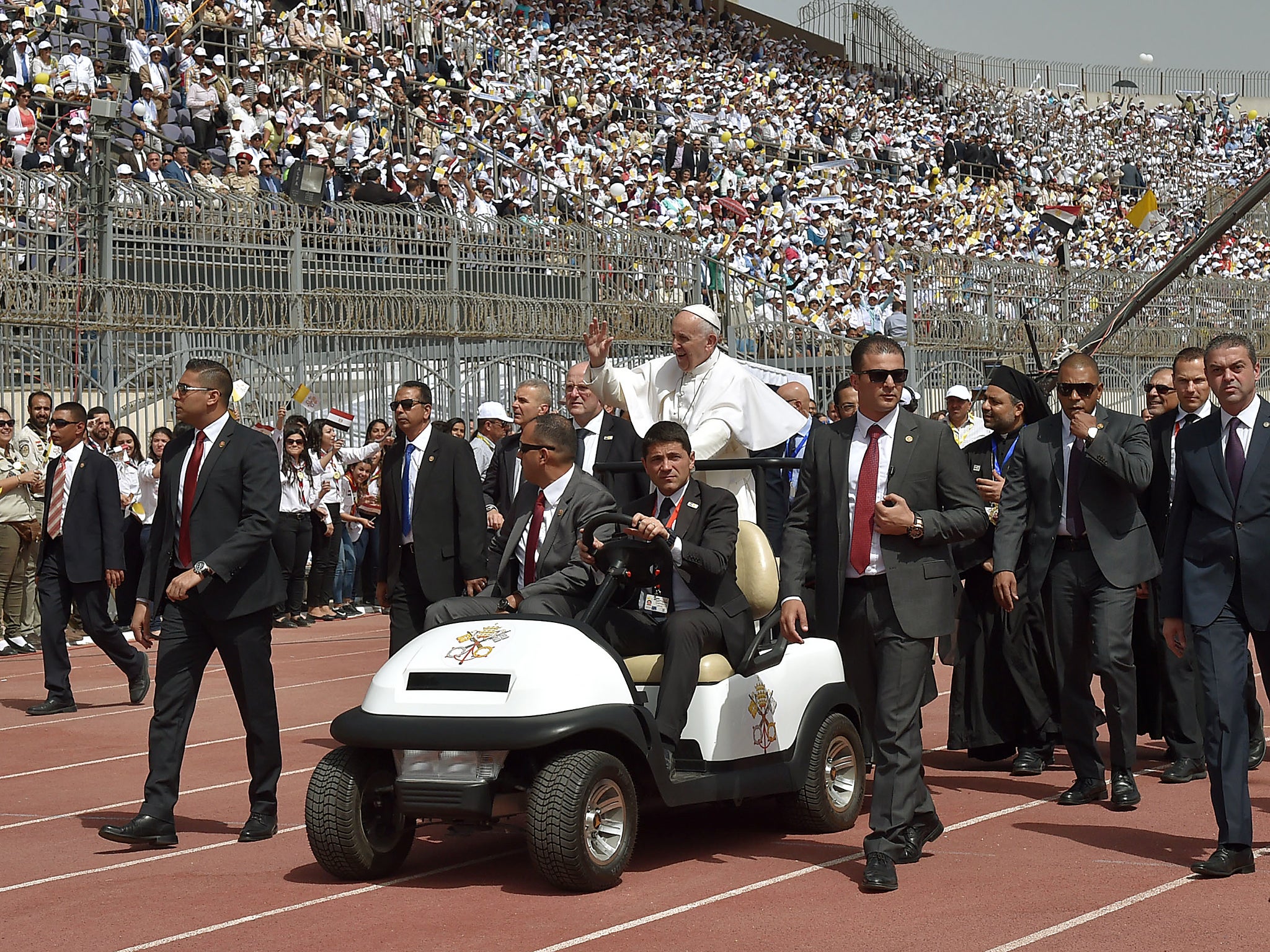
Local disagreements between Muslims and Christians are frequently handled by controversial “reconciliation councils,” where local community leaders arbitrate disputes. It’s a policy that has left Christian minorities marginalised and well-connected criminals allowed to walk free.
In a scathing report, The Egyptian Initiative for Personal Rights said that continuing this policy “only serves to perpetuate tensions and creates a climate in which any dispute between citizens is liable to escalate into sectarian violence and collective punishment.” In contrast to occasional atrocities at the hands of Sinai Province, Tadros says “it’s really the daily persecution Copts encounter that captures the plight that they live under in Egypt.”
But nowhere else in Egypt do Christians suffer more than in the region of North Sinai. The fight between the state and Sinai Province has reached a new intensity in recent years. According to the US-based Tahrir Institute for Middle East Policy, the first half of 2016 saw an average of 48 attacks against the security forces per month, compared to 28 attacks per month in the previous six months.
The violence has even begun to creep into the generally safe region of South Sinai. Just a week before Pope Francis landed in Cairo, Sinai Province shot up a police checkpoint near the famous Saint Catherine’s Monastery, leaving one officer dead and four others injured.
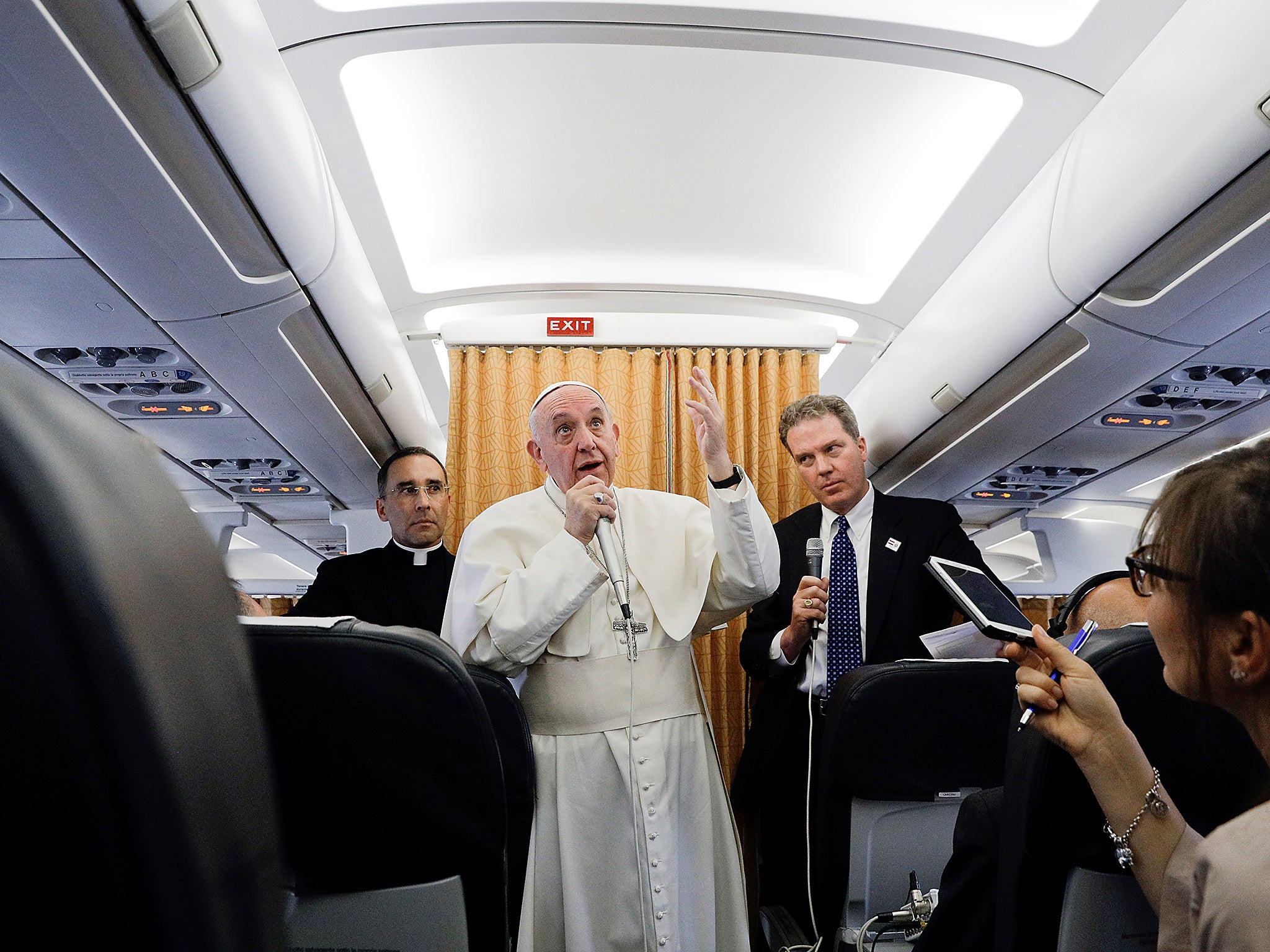
Christians living in North Sinai are suffering the full force of IS’s encroachment into Egypt. In the last six months, insurgents have begun summary executions of Copts, with reports of at least one man being beheaded and another burnt alive. The region was home to around 5,000 Christians before 2011, but since then most have fled to other parts of the country. Church officials estimate that just 1,000 Copts remain in North Sinai.
In February alone, following the execution of at least seven Christians in the provincial capital of Al Arish, more than 100 families fled en masse to the city of Ismailia on the western bank of the Suez canal, prompting a statement from Amnesty International urging the government to do more to protect Christians.
“There’s certainly a growing sense among ordinary Copts that the regime is not doing anything for them,” says Tadros. Following the attacks on Palm Sunday, and the bombing in December, there were small spontaneous demonstrations calling for the fall of the regime, although such instances are rare. With the threat of Islamic State looming large, Copts are in no position to oppose the current administration. “There are no alternatives,” says Tadros. “Like the rest of the Egyptian population they realise that there is Sisi and then there’s nothing else.”
Join our commenting forum
Join thought-provoking conversations, follow other Independent readers and see their replies
0Comments